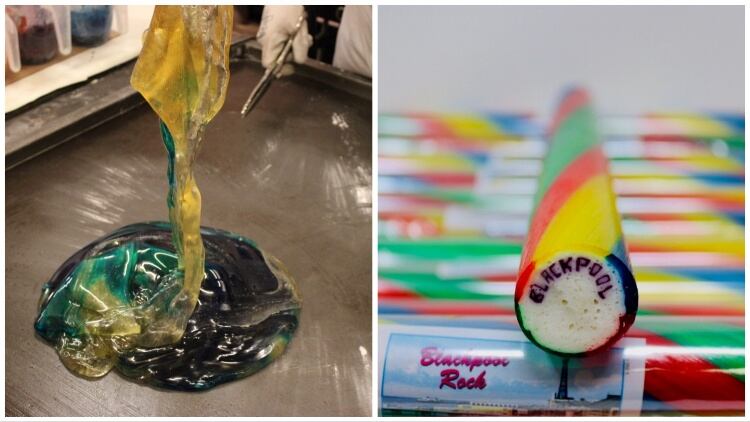The letter, signed by 10 confectionery companies which make British rock, emphasised the important part this sweet plays in the local economy and British tourism.
It goes onto outline that the rise of “cheap Chinese imported imitations” pose a grave and immediate challenge to the industry, jeopardising the livelihoods of countless employees and the sustainability of the businesses they work for.
Specifically, it flags issue with products that are “made in China but call themselves ‘Blackpool Rock’ or similar”, which the letter claims consumers do not realise are imitations of UK-made sweets.
“The quality and integrity of British confectionery is unparalleled, built upon generations of craftsmanship and expertise. However, in recent months, inferior products have flooded our market, undercutting domestic producers and eroding consumer confidence in locally-made goods while giving the impression to consumers that they are buying British products,” the letter reads.
Included in the signatories is David Thorp director of Stanton & Novelty Ltd, a family-owned confectioner established in 1970.
Among Stanton & Novelty’s products, which includes sweet jars, marshmallow products and fudge boxes, its bestseller is rock.
“It’s still a really popular product,” Thorp said. “We’ve had to update certain things to go with the changes in consumer taste of course – we do about 50 flavours now.”
He told Food Manufacture that the issue raised in the letter had become apparent a few months ago and since writing to local MPs, no life raft has come.
Whilst the silence isn’t surprising - given Blackpool’s current situation, with two MPs having recently resigned (Scott Benton and Mark Menzies) as a result of scandal - it’s disheartening.
“Three years ago, there were 24 factories, and we believe, by the end of this year, they’ll only be eight,” Thorp continued. “A couple have said that they're going to either retire or they just can't do it anymore.”
The companies represented in the signatures on the letter supply most of the traditional British rock sticks in the UK. Not just Blackpool Rock, but any seaside rock in Great Britain. Without them, genuine, UK-made rock would be all but extinct.
This letter also marks a first in a united front from these competing manufacturers, according to Thorpe. Commenting on the imported rock undercutting them all, he said: “It’s an inferior product and that was a bit of a red line for the 10 factories.”
Moreover, there are only about 30 people in the entire country who have the skills needed for ‘lettering’, where the letters (such as ‘Blackpool Rock’) are embedded through the stick.
“It takes about five years to learn,” Thorpe said, who is among the handful of those skilled enough to do this. “There’s something like 9 times more heart surgeons in the UK than there are people who can put letters through a stick of rock.”
Whilst the dexterity of a heart surgeon is without question a more important technical skill to possess in the grand scheme of things, it would be a real shame for the UK to lose this part of its history entirely.
“Rock is very much part of our cultural heritage in the UK and for seaside resorts,” Thorp said.
“I’m well aware there is a lot of important stuff going on at the moment and this niche industry isn’t something many would assign a lot of importance to, but it’s important to us, it’s important to this town. It’s important to our staff and our national identity.”
The letter was signed by Stanton & Novelty, Hornby/Parterre Confectionery, McAdams Confectionery, Arnolds Confectioners, Rainbow Candies, Baxter Brothers Confectionery, Promotional Candy, Montague’s Candy, Mr Confectionery/Marton Rock, and Blackpool Rock & Novelties. An application for protected origin status has also been sent to Defra.
In other news, the iconic Tetley building in Leeds has opened its doors once again as Kirkstall Brewery takes over.


